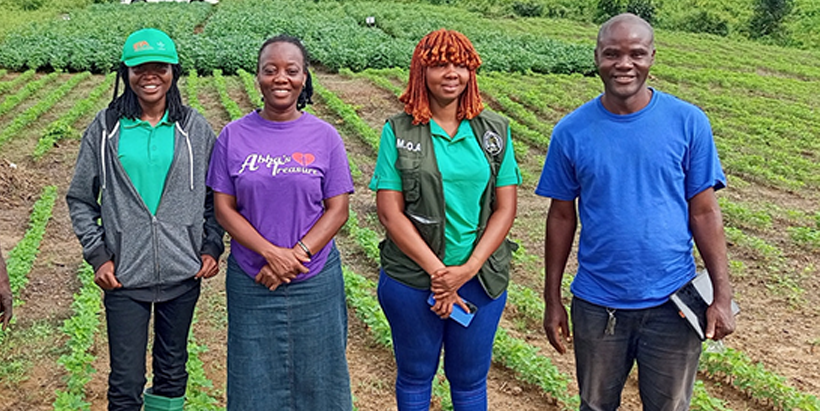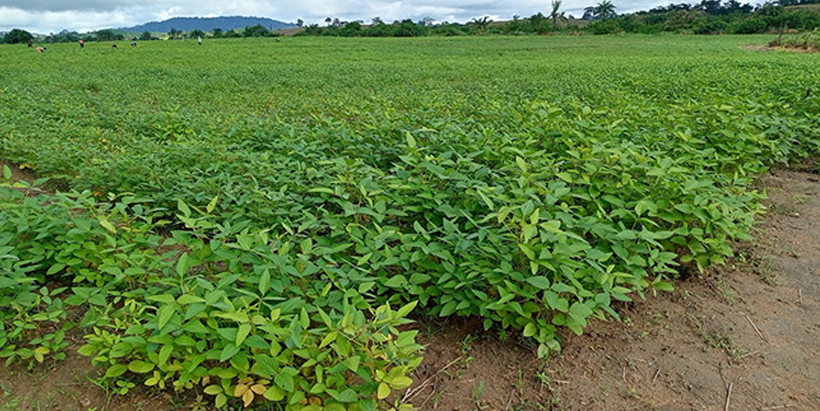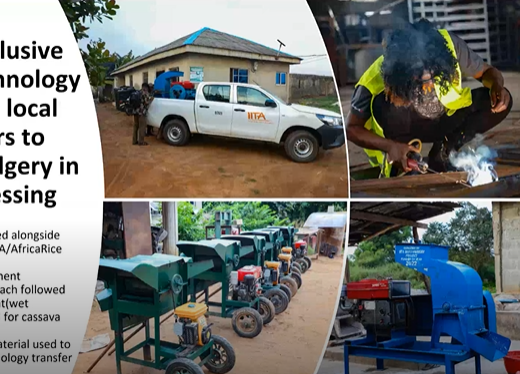Agriculture production in Liberia faced a major challenge, i.e., limited access to high-quality seeds of important African food crops, including soybeans. Most farmers relied on informal seed networks for the next production season. These networks are crucial for agricultural continuity among farmers, who often lack the technical skills required to determine seed quality. As a result, yields have been low, affecting farmers’ income and undermining Liberia’s quest for food sufficiency.
The EU-funded Seeds4Liberia project, in partnership with the Liberian government, is a crucial initiative to boost Liberia’s seed systems, including soybean. It does this through demand-driven, structured, and regulated seed systems for soybean and other important value chains—rice, cassava, coffee, and fish. The project’s collaboration with key institutions such as the Ministry of Agriculture (MoA), the Central Agricultural Research Institute (CARI), the National Fisheries and Aquaculture Authority (NaFAA), the Seed Development and Certification Agency (SDCA), and the Liberia Agricultural Commodity Regulatory Authority (LACRA) underscores its importance and support to national development frameworks for enhanced food and nutrition security and job creation in Liberia.
Why soybean?
Soybean is a primary plant-based protein source, with 76-80% used for animal feed and 20% for human consumption. Africa’s soybean market is also vying for a stake in the global soybean market. According to reports, Africa’s soybean market is projected to grow at more than 5.52% CAGR from 2025 to 2030. Liberia, in its efforts to diversify to ensure food sufficiency and economic growth, is charting a new course to tap into the potential of the soybean market. Here are four pillars the EU-backed project is strengthening to build a resilient soybean seed system for sustainable growth.
Human capacity strengthening
In addition to increasing public awareness about the benefits of soybean, the project has conducted training sessions to promote best practices in soybean production. To date, the project has empowered approximately 30 extension agents, with plans for additional training focused on various aspects of production, including harvest, post-harvest handling, and value addition. Also, the project has established eight farmer field schools (demo sites) in five counties–Bong, Lofa, Margibi, Montserrado, and Nimba to provide training on production practices.
Infrastructure strengthening
Weak infrastructure, including inadequate testing laboratories, limited processing, and poor storage facilities, continues to affect seed development. The Seeds4Liberia project, in partnership with CARI, is renovating a seed-testing laboratory to support resilient seed systems for the distribution of high-quality seeds, including soybeans.

The (IITA soybean breeding unit is implementing the soybean component of the EU-funded Seeds4Liberia project in collaboration with MoA, CARI, NaFAA, SDCA, and LACRA
Field resilience
Farms still use traditional seed production methods, which do not help the seeds thrive under climate change. In response, the Seeds4Liberia Project has introduced climate-smart and market-preferred soybean varieties into Liberia’s ecology through a series of processes: breeder and foundation seed production, followed by seed certification to ensure field resilience. Moreover, six soybean adaptation trial sites have been established across five counties—Bong Lofa, Margibi, Montserrado, and Nimba—to evaluate six high-performing varieties and determine which are best adapted to the Liberian climate. The project is also collaborating with local seed enterprises and government ministries and agencies to promote the broader adoption of best practices and to ensure the development of climate-resilient soybean varieties.
Policy strengthening and enforcement
In addition to strengthening human capacity, infrastructure, and field resilience, the Seeds4Liberia project is actively contributing to Liberia’s seed systems reform by generating comprehensive market intelligence, sharing expertise in implementing robust certification systems, and formulating policies to reinforce seed value chains—particularly those related to soybeans.
As Liberia strives for resilient seed systems, a crucial step toward achieving food sufficiency, improved nutrition, and overall agricultural prosperity, the Seeds4Liberia project serves as a model of impactful collaboration among research, policy, and grassroots engagement. The project will continue to extend its capacity-building support to farmer groups and seed companies to improve their ability to multiply and supply high-quality seeds of the best soybean varieties.
Contributed by George A. Harris,
Communication Officer, AfriaRice-Liberia Station/ EU-funded Seeds4Liberia Project



No Comments